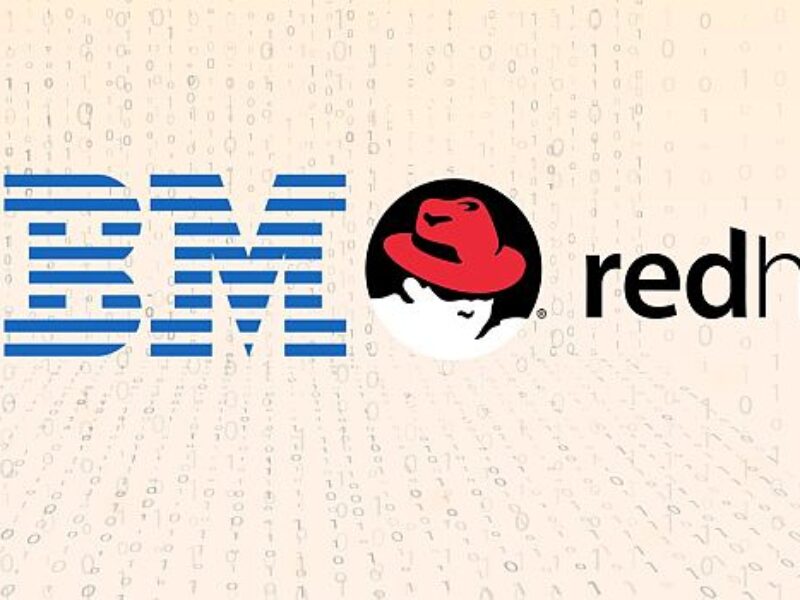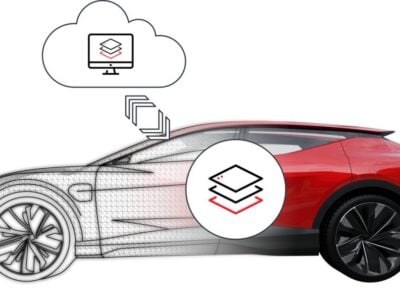
IBM purchases Red Hat in ‘hybrid cloud’ drive
Under the agreement, IBM will acquire all of the issued and outstanding common shares of Red Hat for $190.00 per share in cash, representing a total enterprise value of approximately $34 billion. Red Hat will continue to operate as a distinct unit within IBM’s Hybrid Cloud team, and IBM says it will remain committed to Red Hat’s open governance, open source contributions, participation in the open source community, and development model, and fostering its widespread developer ecosystem.
Long a supporter of open source technologies, IBM’s latest move is targeted at addressing what the company says is the next stage in the evolution of cloud computing – the “hybrid cloud.” Hybrid cloud computing refers to a cloud computing environment that uses a mix of on-premises private-cloud and third-party public-cloud services with orchestration between the two platforms.
“The acquisition of Red Hat is a game-changer,” says Ginni Rometty, IBM Chairman, President and Chief Executive Officer. “It changes everything about the cloud market. IBM will become the world’s #1 hybrid cloud provider, offering companies the only open cloud solution that will unlock the full value of the cloud for their businesses.”
“Most companies today are only 20 percent along their cloud journey, renting compute power to cut costs,” says Rometty. “The next 80 percent is about unlocking real business value and driving growth. This is the next chapter of the cloud. It requires shifting business applications to hybrid cloud, extracting more data and optimizing every part of the business, from supply chains to sales.”
Jim Whitehurst, President and CEO, Red Hat adds, “Open source is the default choice for modern IT solutions, and I’m incredibly proud of the role Red Hat has played in making that a reality in the enterprise. Joining forces with IBM will provide us with a greater level of scale, resources and capabilities to accelerate the impact of open source as the basis for digital transformation and bring Red Hat to an even wider audience – all while preserving our unique culture and unwavering commitment to open source innovation.”
The acquisition, say the companies, brings together the best-in-class hybrid cloud providers and will enable companies to accelerate hybrid multi-cloud adoption and securely move all business applications to the cloud. This is currently being prevented by the proprietary nature of today’s cloud market, they say, which prevents portability of data and applications across multiple clouds, data security in a multi-cloud environment, and consistent cloud management.
Together, the companies say they will help clients create cloud-native business applications faster, drive greater portability and security of data and applications across multiple public and private clouds, all with consistent cloud management. In doing so, they will draw on their shared leadership in key technologies, such as Linux, containers, Kubernetes, multi-cloud management, and cloud management and automation.
IBM has been partnering with Red Hat for 20 years, helping the latter develop and grow enterprise-grade Linux and more recently to bring enterprise Kubernetes and hybrid cloud solutions to customers. Between them, say the companies, they have contributed more to the open source community than any other organization.
The companies say they will continue to build and enhance Red Hat partnerships, including those with major cloud providers, such as Amazon Web Services, Microsoft Azure, Google Cloud, Alibaba, and others, in addition to the IBM Cloud. At the same time, Red Hat will benefit from IBM’s hybrid cloud and enterprise IT scale in helping expand their open source technology portfolio to businesses globally.
Arvind Krishna, Senior Vice President, IBM Hybrid Cloud says, “IBM is committed to being an authentic multi-cloud provider, and we will prioritize the use of Red Hat technology across multiple clouds. In doing so, IBM will support open source technology wherever it runs, allowing it to scale significantly within commercial settings around the world.”
Under the agreement, Red Hat will continue to be led by Jim Whitehurst and Red Hat’s current management team. Jim Whitehurst will also be joining IBM’s senior management team and report to Ginni Rometty. IBM says that it intends to maintain Red Hat’s headquarters, facilities, brands, and practices.
The acquisition, says IBM, will accelerate its revenue growth, gross margin, and free cash flow within 12 months of closing, as well as support a growing dividend. Subject to Red Hat shareholder approval, regulatory approvals, and other customary closing conditions, the acquisition is expected to close in the latter half of 2019.
 If you enjoyed this article, you will like the following ones: don't miss them by subscribing to :
eeNews on Google News
If you enjoyed this article, you will like the following ones: don't miss them by subscribing to :
eeNews on Google News




